
CORONAVIRUS DISEASE COVID 19 NEWS AND RESEARCH
Latest Coronavirus Disease COVID 19 News and Research
Anti-inflammatory medication helps fight dangerous immune response in COVID-19 patients
Most patients hospitalized with COVID-19 (coronavirus) pneumonia experienced improvement after receiving a Food and Drug Administration-approved drug normally given for rheumatoid arthritis, according to an observational study at Cedars-Sinai.
Global negative sentiments surrounding COVID-19 shift from fear to anger, study finds
The fear that people developed at the start of the COVID-19 outbreak has given way to anger over the course of the pandemic, a study of global sentiments led by Nanyang Technological University, Singapore (NTU Singapore) has found.
New trial investigates if prostate cancer drug can be used to treat COVID-19
In a new trial, Swedish researchers will investigate if a medicine normally used to treat prostate cancer can also be used to treat COVID-19 in patients.
Conspiracy theories aside, here’s what contact tracers really do
In the midst of the COVID-19 epidemic, contact tracing is downright buzzy, and not always in a good way.
Cholesterol-lowering drugs show promise to lower COVID-19's threat
Could a simple drug, that has been on the market for decades, be used to treat COVID-19? A research team led by Hebrew University of Jerusalem (HU)'s Professor Yaakov Nahmias says that early research looks promising; their findings appear in this week's Cell Press' Sneak Peak.
California school districts grope for sensible reopening plans
School leaders in Elk Grove, California, wanted to leave as little to chance as possible. So they brought nearly 150 voices into their decision-making process, and canvassed the parents of the estimated 63,000 students in the district to ask how they wanted their children taught.
10x Genomics launches Chromium Single Cell Immune Profiling v2 product to fight COVID-19
10x Genomics strengthened the research toolkit of scientists around the globe today with the launch of its Chromium Single Cell Immune Profiling v2 product.
Antibodies to SARS-CoV-2 disappear within three months
The question is, does this infection confer lasting immunity? A new study published in the journal Clinical Microbiology and Infection in July 2020 appears to show that it does not, with antibodies to the severe acute respiratory syndrome coronavirus 2 (SARS-CoV-2) disappearing within three months of infection.
Experimental vaccine induces neutralizing antibodies against SARS-CoV-2
An investigational vaccine, mRNA-1273, designed to protect against SARS-CoV-2, the virus that causes coronavirus disease 2019 (COVID-19), was generally well tolerated and prompted neutralizing antibody activity in healthy adults, according to interim results published online today in The New England Journal of Medicine.
Transmission of coronavirus from dogs to humans is scientifically flawed
A study published earlier this year claiming the coronavirus may have jumped from dogs to humans is scientifically flawed, offering no direct evidence to support its conclusions, according to a collaborative group of international researchers, including scientists at the University of Colorado Anschutz Medical Campus.
Certain antibodies may cause the dangerous part of COVID-19 disease
A new study out of the Netherlands and published on the preprint server bioRxiv* in July 2020 discusses the commonly observed phenomenon of COVID-19 progression at 1-2 weeks from the onset of the earliest symptoms. This is ascribed to the overactivation of the inflammatory signaling cascade triggered by a hyperactive adaptive immune reaction, commonly called the cytokine storm.
Study: Amount of SARS-Cov-2 receptor is increased in patients with pre-existing cardiac conditions
Nearly 20% of all COVID-19-associated deaths are from cardiac complications, yet the mechanisms from which these complications arise have remained a topic of debate in the cardiology community.
Mobility and flexibility in SARS-CoV-2 proteins
Now, a new study published on the preprint server bioRxiv in July 2020 describes the use of in silico modeling of potential drug targets on the severe acute respiratory syndrome coronavirus 2 (SARS-CoV-2) protein structures, using data retrieved from the Protein Databank (PDB).
Strong evidence several FDA approved drugs block SARS-CoV-2 in relevant cell-lines and human organoids
Now, a new study describes how compounds that restore the normal transcriptional conditions following infection with severe acute respiratory syndrome coronavirus 2 (SARS-CoV-2) can be used to reduce viral load without neutralizing the virus entry into the host cell.
"Winter is coming," warn UK COVID-19 experts
The famous line from "Game of Thrones" about approaching dangers this winter may prove to be accurate, say, scientists in a new report. The researchers state that a second wave of infection could hit the United Kingdom this winter, and this would be worse than the first wave taking as many as 120,000 lives.
A special air filtration system that can "catch and kill" the coronavirus
Now researchers from the University of Houston have come up with a unique air filter system that can catch and kill the novel coronavirus. The air filter can reportedly kill the coronavirus on contact.
Llama nanobodies block SARS-CoV-2 infection in vitro
Now, a team of scientists at the United Kingdom's Rosalind Franklin Institute may have a surprising solution for the coronavirus pandemic, which has killed more than 574,000 people worldwide.
One in three young adults at a higher risk of severe COVID-19 due to smoking, vaping
Now, a new study shows that about one in three young adults may be at risk of severe COVID-19 due to smoking and vaping habits.
Palliative nursing's role during COVID-19 pandemic and in future health crisis
As a rapid influx of patients overwhelmed health systems during the coronavirus pandemic, palliative nurses played dual roles supporting patients, patient families, and colleagues.
Genome comparisons between SARS-CoV-2 and other betacoronaviruses yield applicable insights
Researchers from the Venezuelan Institute for Scientific Research and the Australian National University untangle the mutational and recombinational history of the SARS-2 lineage of betacoronaviruses and their metagenomes with the use of published genomic sequences. Their findings are currently available on the bioRxiv preprint server.

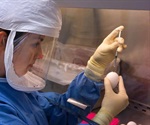
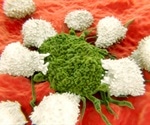
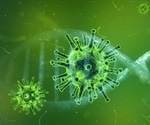
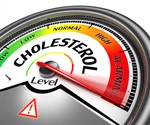


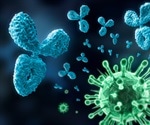
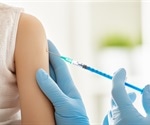

_1d6309de14bd42af8252aef0dd4199d8-150x125.jpg)

_325a8f653f8949c690965559e8564e47-150x125.jpg)
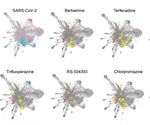
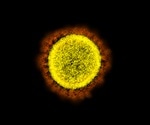
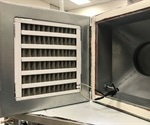

_df46dc497c0b468e852283edadb71b23-150x125.jpg)

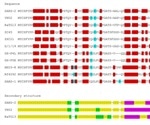
































No hay comentarios:
Publicar un comentario